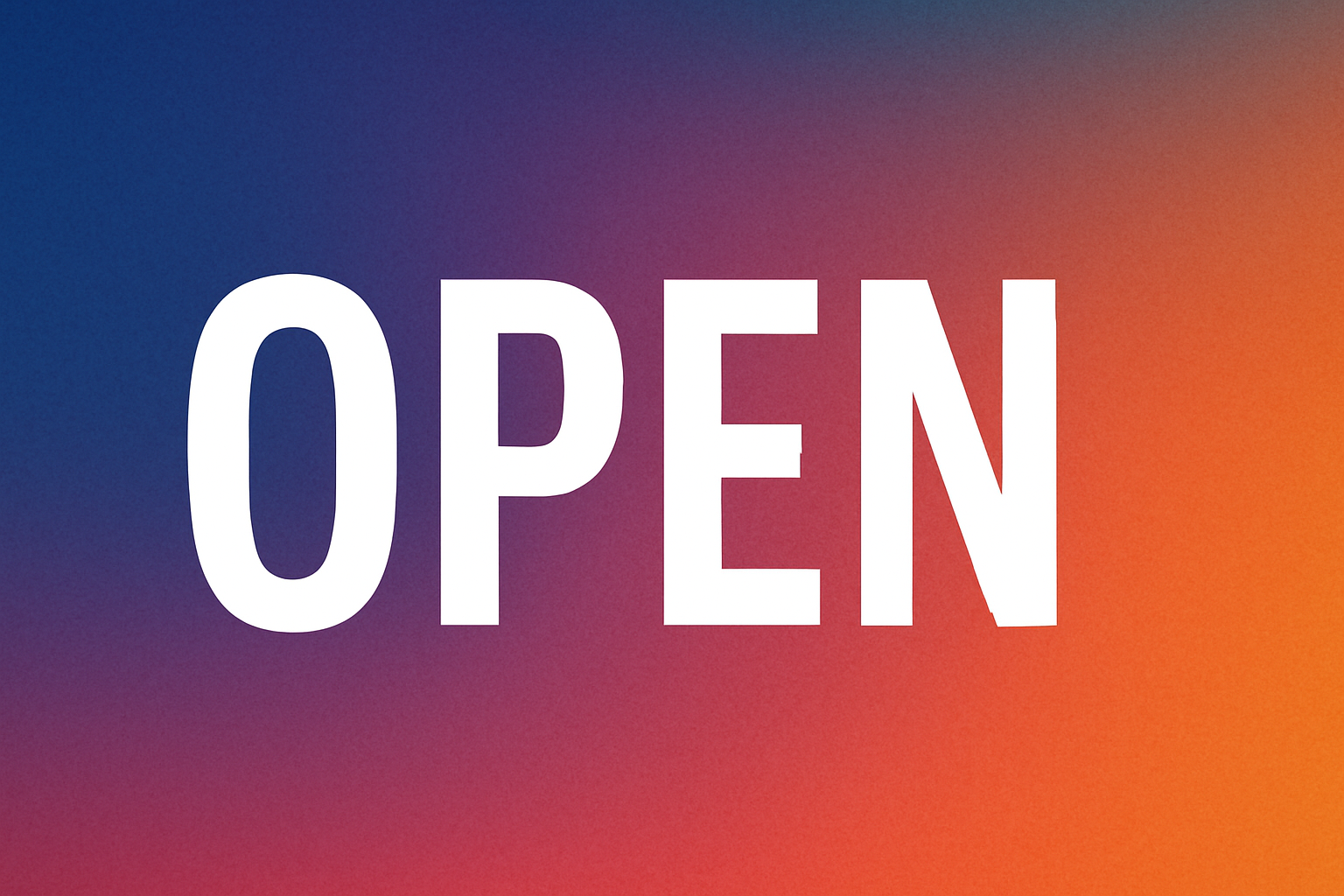The Power of “Open” in Modern Contexts
In today’s fast-paced world, the word “open” has come to represent far more than just an adjective. It holds immense significance across various fields, including technology, business, social interactions, and even our daily lives. This article explores the power of “open” and how it influences modern society, offering new possibilities, ideas, and opportunities.
What Does “Open” Truly Mean?
At its core, “open” means unrestricted, accessible, and free from barriers. It suggests transparency, inclusivity, and the willingness to share. However, in different contexts, “open” can take on a variety of meanings, ranging from physical openness to conceptual openness.
In business, “open” can refer to a culture of transparency, where ideas and feedback are welcomed without fear of judgment. In technology, open systems and software promote collaboration, allowing users to modify, improve, and share resources freely. In social contexts, being “open” means embracing new experiences and viewpoints, which fosters understanding and connection.
The Rise of Open-Source Technology
One of the most powerful examples of “open” in recent years is the rise of open-source technology. Open-source software refers to programs whose source code is freely available to the public. This openness fosters collaboration, allowing developers to improve software collectively. Notable examples include Linux, Apache, and the popular content management system WordPress.
Open-source software has revolutionized the tech industry by democratizing access to high-quality tools. It enables businesses of all sizes to leverage cutting-edge technology without significant upfront costs. The open nature of these projects also encourages innovation, as anyone can contribute to the development process. This model has proven so successful that many companies, including tech giants like Google and Microsoft, have embraced open-source principles in their operations.
Open Business Models: Collaboration Over Competition
In the business world, the concept of “open” is also reshaping traditional business models. Companies are moving away from the idea of strict competition and instead are embracing collaboration. This shift is seen in the rise of open innovation, where businesses openly share ideas and solutions with external partners, such as universities, research labs, or even competitors.
By adopting an open business model, companies can access a broader pool of ideas and resources. For example, businesses in the pharmaceutical industry have begun sharing data and research openly to accelerate the development of new treatments. Similarly, in the automotive industry, manufacturers are collaborating to create open standards for electric vehicle charging infrastructure.
Such collaborations not only lead to faster innovation but also foster a sense of community within industries. In a highly competitive world, open models present a refreshing change that prioritizes collective progress over individual gains.
The Role of “Openness” in Personal Growth
On a personal level, being “open” can significantly contribute to growth and development. Openness to new experiences, perspectives, and ideas allows individuals to learn and adapt more effectively. In relationships, openness fosters better communication and understanding, which is vital for building strong connections.
Furthermore, being open-minded promotes creativity. When people are willing to consider unconventional ideas or solutions, they are more likely to come up with innovative answers to complex problems. This is particularly important in today’s world, where change is constant, and adaptability is key to success.
The Open Future: Embracing Opportunities
Looking ahead, the concept of “open” will continue to shape our future. In education, for instance, open learning platforms are making knowledge accessible to anyone, anywhere. Massive open online courses (MOOCs) provide students with the opportunity to learn from prestigious institutions without the traditional barriers of cost or location.
In politics, transparency and open government practices are gaining traction as people demand greater accountability from their leaders. Open data initiatives are helping citizens access information and participate more actively in governance, ensuring that democracy remains robust.
Ultimately, the word “open” is not just a description; it is a mindset that encourages progress, inclusivity, and collaboration. Whether in business, technology, or personal development, embracing openness can unlock new opportunities and lead to a brighter, more connected future.
Conclusion: Unlocking the Power of Open
In conclusion, the word “open” is a key driver of change in today’s world. From open-source technology to business models that prioritize collaboration, the power of openness is undeniable. As we move forward, it will continue to shape industries, relationships, and even governments. Embracing “open” in all its forms is crucial for anyone looking to thrive in a rapidly changing world. The future belongs to those who are willing to embrace new ideas, collaborate, and share knowledge openly.
FAQs
- What does “open” mean in the context of business?
- In business, “open” refers to a culture of transparency, collaboration, and sharing ideas without fear of judgment or competition.
- How does open-source software work?
- Open-source software is publicly available, allowing anyone to access, modify, and improve the source code. It encourages collaboration among developers and users alike.
- Why is openness important for personal growth?
- Openness allows individuals to embrace new experiences, adapt to change, and communicate better, all of which are essential for personal development.
- What are the benefits of an open business model?
- An open business model promotes innovation, access to diverse ideas, and collaboration, leading to faster problem-solving and growth.
- How can openness shape the future?
- Openness will continue to foster innovation in areas such as education, politics, and technology, creating more opportunities for collaboration and progress.
